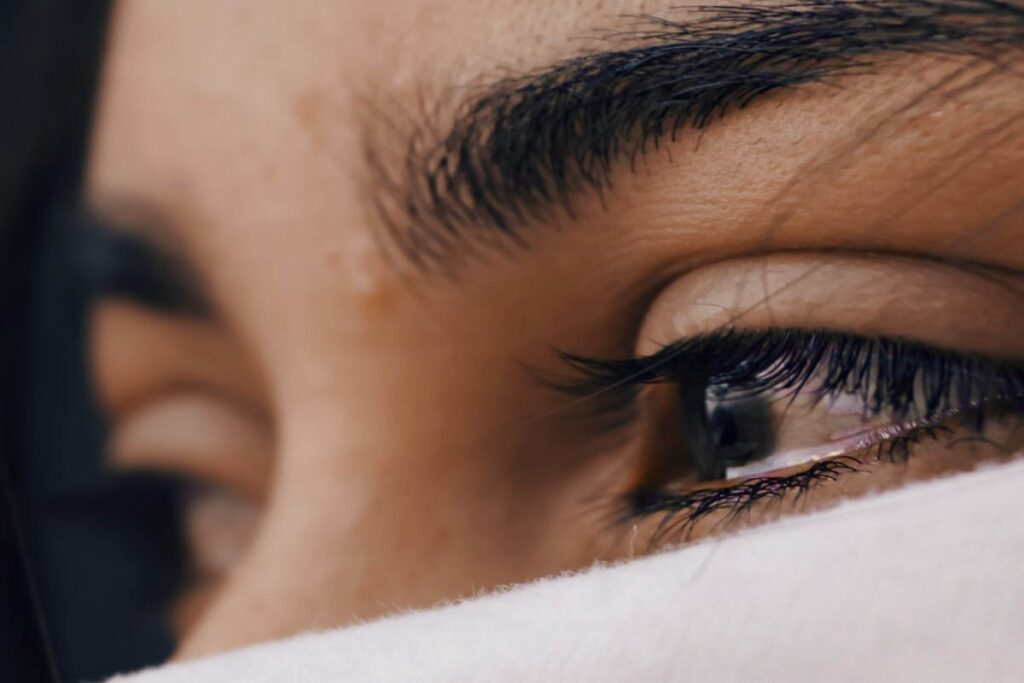Coping with Worries about Going Out

Learn

Daylight
Daylight is your expert guide through worry and anxiety, whenever and wherever you need it.

Worries About Going Out (Agoraphobia)
Agoraphobia is a fear of being in situations from which the person sees that escape may be difficult or embarrassing.

What is Panic?
Panic is when we experience a sudden surge of intense fear. This comes along with physical sensations and frightened thoughts, which can make us feel even more panicked and create a vicious cycle.
Self-Assess
People with fears about going out often have a hard time feeling safe in public places, especially where crowds gather. The fear can be so overwhelming that you may feel unable to leave your home.
If you have experienced this then you might recognise the experiences described below:
How your body might feel
- Rapid, shallow breathing
- Increased heart rate or palpitations
- Numbness or tingling in hands and feet
- Feeling like you might faint
Thoughts you might have
- “I need to get out of here”
- “I can’t face that place”
- “I’ll just stay where it’s safe”
- I’m going to make a fool of myself if I go there”
Feelings you might have
- Being overwhelmed
- Fear and terror
- Panic
- Feelings of “unreality”, like you’re not really there or you’re experiencing what’s happening from outside of yourself
- Worry about further exposure to places that don’t feel safe
Things you might do
- Avoid crowded places or queueing in a line
- Avoid open places you feel you can’t escape, like shopping centres or bridges
- Avoid enclosed spaces such as lifts or the cinema
- Avoid using public transport
- Not going out unless you’ve got someone with you
- Bring specific items outside with you to help you feel safe
If you recognise these experiences, it may help to find out more about panic in the ‘Learn’ section above. You’ll also find some helpful tips and advice on managing panic in the ‘Manage’ section below.
Manage

Panic Guide
A self help guide for Panic. Produced by NHS Cumbria, Northumberland, Tyne and Wear.

Managing Agoraphobia – STOPP
One of the most effective techniques for managing the panic you might experience going outside – even before it starts – is to STOPP.

Exposure Therapy
Overcoming agoraphobia is possible. The treatment is called exposure. Exposure means gradually facing your fear until anxiety falls.

Exposure Hierarchy
A useful tool for identifying what make you anxious and how severe the anxiety you feel is in different situations.

Tips on Managing Change in Our Lives
We all have to cope and manage with change in our lives for lots of reasons. Here are some tips and thoughts on navigating through a period of change.

Computerised Cognitive Behavioural Therapy
Cognitive Behavioural Therapy – CBT – is a psychological therapy based on the relationships between what we think, what we do and how we feel. CBT teaches you how to recognise and tackle problems in the here and now, rather than in the past.
Support
In time, you might find that your ability to manage your worries about going outside improve on their own, with support from the people in your life, or with tools to help you cope.
However, if things don’t improve or if you’re having difficulties with your mental health more generally, please make sure that you contact your GP to ask for support.
The organisations below may also be helpful:
- iThrive (previously Edspace): an online space for mental health and wellbeing in Edinburgh. https://ithriveedinburgh.org.uk/
- The Silverline: a free confidential helpline providing information, friendship and advice for older people. Phone: 0800 470 80 90 (free to call, open 24/7, 365 days per year). https://www.thesilverline.org.uk/
- Breathing Space: free and confidential phone service if you are feeling low, anxious or depressed. Phone: 0800 83 85 87 (free to call, Mon-Thur 6pm-2am; Friday-Mon 6pm-6am) https://breathingspace.scot/
- The Samaritans: emotional support for anyone in emotional distress. Phone: 116 123 (free to call, open 24/7, 365 days per year) https://www.samaritans.org/
- SAMH: offers support and information about mental health problems. Phone: 0344 800 0550 https://www.samh.org.uk/
- Managing loneliness. https://www.nhs.uk/conditions/stress-anxiety-depression/loneliness-in-older-people/
Domestic Abuse Support
- National Domestic Abuse helpline: 0808 200 246 (free to call, open 24/7) https://www.nationaldahelpline.org.uk/
- Scottish Woman’s Aid: Tel 0800 027 1234 https://womensaid.scot/
- Abused Men In Scotland (AMIS): Tel 0808 800 0024 (free to call, open Mon-Fri 9am-4pm) https://amis.org.uk/













